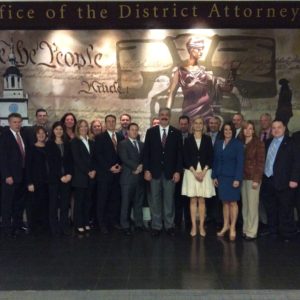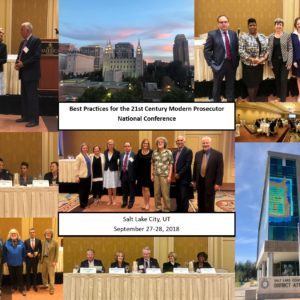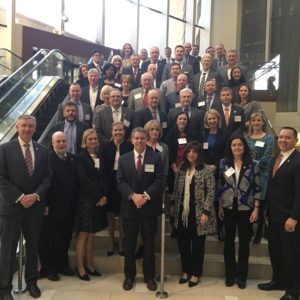REGIONAL PROSECUTORS’ BEST PRACTICES MEETING

Location: Philadelphia, PA
Attending: Connecticut, Delaware, Massachusetts, New York, Pennsylvania, Rhode Island, South Dakota, Vermont.

Location: Philadelphia, PA
Attending: Connecticut, Delaware, Massachusetts, New York, Pennsylvania, Rhode Island, South Dakota, Vermont.

Location: Salt Lake City, UT
National Conference sponsored by the Salt Lake County District Attorney’s Office and Prosecutors’ Center for Excellence.

Location: Spokane, WA
Attending: Arizona, California,Colorado, Hawaii, Idaho, Iowa, Kansas, Kentucky, Louisiana, Maryland, Massachusetts, Minnesota, Nebraska, New York, Ohio, Oklahoma, Oregon, South Dakota, Tennessee, Virginia, Utah, Washington

Location: Washington, D.C.
Attending: Louisiana, Maryland, New York, North Carolina, South Carolina, Tennessee, Virginia, Association of Prosecuting Attorneys (APA), National District Attorneys Association (NDAA), US Department of Justice, Washington DC US Attorneys Office, Bureau of Justice Assistance.

Location: Washington, D.C.
Attending: Arkansas, Connecticut, Delaware, Louisiana, Maryland, Missouri, New York, North Carolina, Oklahoma, Pennsylvania, Rhode Island, South Carolina, Tennessee, Vermont, Virginia, National District Attorneys Association (NDAA), Association of Prosecuting Attorneys (APA), Department of Justice, Washington DC US Attorneys Office, Bureau of Justice Assistance.

Location: Washington, D.C.

Location: Washington, D.C.
Attending: Arizona, Bureau of Justice Assistance, California, Colorado, Department of Justice, Georgia, Idaho, Illinois, Kansas, Kentucky, Louisiana, Maryland, Minnesota, Missouri, North Carolina, New Jersey, New York, New Mexico, Ohio, Pennsylvania, Texas, and Virginia

Location: Washington, D.C.
Attending: Alabama, Arizona, California, Colorado, Illinois, Kansas, Kentucky, Louisiana, Maryland, Minnesota, Mississippi, Missouri, Nebraska, Nevada, New Mexico, New York, North Carolina, Ohio, Oklahoma, Oregon, Pennsylvania, South Dakota, Tennessee, Texas, Virginia, Utah, Vermont, Washington

Authors: PCE and Sarah Solano Geisler
Innovative programs described in these state-level papers funded by the DOJ’s Office of Justice Programs are newly developed initiatives undertaken by an office in keeping with its unique resources and the needs of its community. We seek to highlight those offices that are embracing their new role by working within their capacity to bring effective and proactive programs to their communities.
Read More